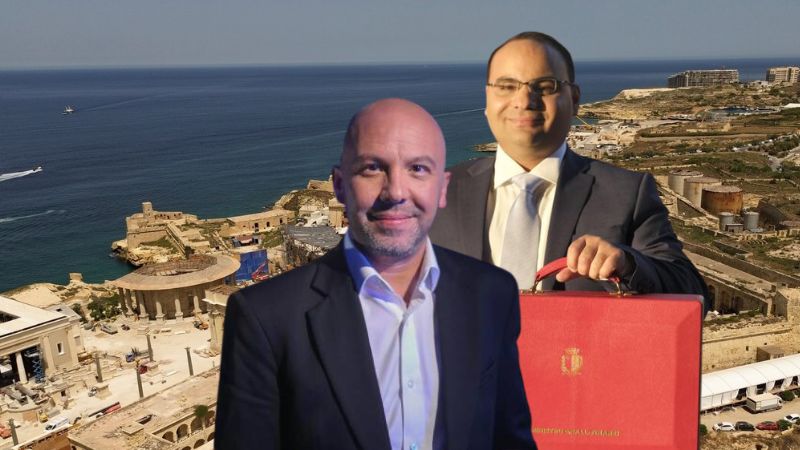The UK-registered film production company estimated to receive a record €47 million in subsidies for filming parts of the Gladiator sequel on the island posted massive losses over the last three years.
According to its latest set of published accounts, August Street Films Ltd declared pre-tax losses of €24.5 million in 2021, €1.1 million in 2020 and another loss of €4.7 million in 2019.
The company, a subsidiary of the US film giant Paramount Global, declared receiving only €1.4 million in government grants during its last reported financial year (2021).
Sources in the film industry told The Shift that while the UK film company’s latest accounts cover the difficult period of the Covid-19 pandemic, they are still substantial.
While it is common for such productions to set up a Special Purpose Vehicle, a company usually laden with expenses related to film production, it is unclear what due diligence the Malta Film Commission and Finance Ministry conducted before approving the production company’s enormous subsidies.
Earlier this week, The Times reported how Gladiator 2 – a Ridley Scott film that started being filmed in Malta earlier this summer but was suddenly stalled by a Hollywood actors and writers strike – is being subsidised to up to 40% of its costs by Maltese taxes.
This incentive, aimed at attracting such film productions to Malta, is being described by the global industry as the most generous in the world and supersedes similar incentivisation schemes introduced by other much larger economies and with stronger indigenous film industries such as Italy and France.
Unlike the first incentive scheme Malta put up for offer over a decade ago, which was based on tax rebates associated with actual direct expenditure in Malta, the government, prompted by Film Commissioner Johann Grech, changed the rules to enable foreign film producers to reap millions in subsidies on all their costs, even those which are not spent in Malta.
For example, the fees of one of the film’s main actors, Denzel Washington, will be subsidised to the tune of millions even though none of it will be spent in Malta.
The same applies to many other costs.
While film incentives in the EU are highly scrutinised for noncompetitive trends, governments use them to incentivise their indigenous industry and make them more competitive with other global film producers, particularly those from the US.
According to film industry insiders, the opposite is happening in Malta.
While the local film industry is being given peanuts in subsidies and local film productions and being significantly limited as a result, large foreign production companies are being given tens of millions of euros when they spend just a fraction of their budgets on the island.
The government, which tried to keep the millions it is spending through the Malta Film Commission under wraps, stated that last year that the film industry generated some €85 million for the Maltese economy. The government never explained how it came to such a conclusion, nor did it give an account of its figures.
In the meantime, the Malta Film Commission is being given carte blanche by the finance minister to hold multimillion-euro events such as the Malta Film Awards and the more recent Mediterrane Film Festival, without giving any details on how these funds are being spent and administered.













Malta has become an expensive and heavily-censored reality-tv sleaze-fest, with the labour mafia selling it’s future away literally anywhere by dint of a dodgy handshake.
Vote in dilettantes, witness your country die.
It is not known what due diligence the Malta Film Commission and Finance Ministry conducted
As per usual none or maybe done by someone who can not read or write
Without exceptions, the companies attracted by the Labour government come here to make a quick buck from taxpayers money.
Hawwadni ha nifhem….forsi.
I’m not against tax subsidies as such movies can be great marketing but the amount seems really excessive here, spending 47 million for one movie is equal to maybe 150 eur tax per tax payer. Keep digging, this is suspicious.
It is the same Electrogas / LNG Tanker Pattern.
Electrogas had €10 million, BOV was forced to provide €350 for the Generation Plant.
Bumi Armada, who was in the red big time, the company who bought a scrapped LNG tanker, gave it a good paint job and leased it for 18 years to Electrogas through a local representative for €360 million paid in advance, by BOV.
Both contracts completed with a Family Photo of all the benefactors.
Same pattern:
Find a company in the red , show them a bag of millions , and expect a contribution to your preferred future employer. Then become a consultant.
How much does a villa with a view and a perched pool is worth? But that was from hard work during the weekends. So its ok, nothing to see.
Forka
We are all used hearing that Malta is the best in the EU, well now we have expanded our horizons globally.
We are the most generous in granting rebates to foreign film companies.
Financial responsibility to taxpayers’ funds is probably the lowest in the world.
Well done both Ministers of Finance under the PL administration.
Whenever the face of plonker Caruana is on the act, it is guaranteed the taxpayer will be the bigtime loser.